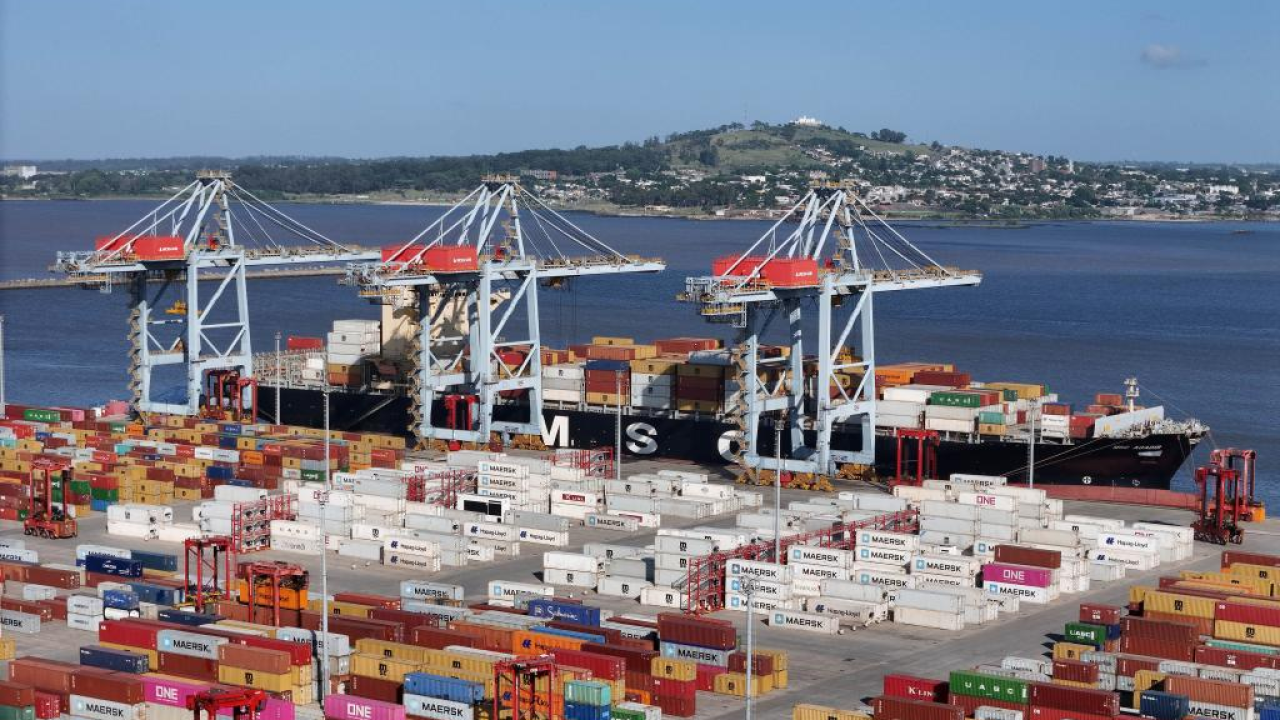
The new import system applied by the Argentine government facilitated bilateral trade, but problems still persist that affect Uruguayan exporters and shipments to that country. Basically, the Argentine situation is making them buy less, analysts say.
Despite the measures implemented by Javier Milei's government, exports to Argentina accentuated a negative trend. Some companies that allocate their production to that destination are experiencing problems and Argentine importers are leaving some already scheduled orders for Uruguayan merchandise pending.
Between January and May of this year, exports were US$196 million, with a year-on-year decrease of 15%. In the five months of 2023 they had been for US$ 231 million and already had a decrease of 46% compared to the same months of 2022.
The three main products closed this year in the red, according to the Uruguay XXI Institute.
Since taking office, Milei's government sought to boost purchases by Argentine companies abroad that were held back by exchange rate and bureaucratic obstacles.
The administration of Alberto Fernández had implemented the Import System of the Argentine Republic (SIRA). At the beginning it was presented as a model to facilitate foreign trade, but it ended up becoming a difficulty for importers.
The system generated delays in prior authorizations of operations and also in payments. This caused, in some cases, Uruguayan exports to accumulate delays of up to a year to be settled.
In mid-December, the current Argentine Minister of Economy, Luis Caputo, reported that there would be a change in the import regime. “The SIRA is replaced by a statistical and import information system that will not require the approval of prior licenses,” he said.
“Discretion ends and transparency in the import approval process is guaranteed. That is, whoever wants to import can do so, period,” he added. A few days later, the Import Statistical System (SEDI) was established.
The first reaction in Uruguay was positive: the incoming government assured conditions that had not been met in the past. However, as the months passed, some red lights appeared.
A survey carried out by the Exporters Union (UEU) showed that there were operations pending payment for US$ 200 million. It was also found that new sales, made through SEDI, were going smoothly.
The regime established that the operations would be paid in four times. 25% at 30 days and the remaining 75% in three equal parts at 60, 90 and 120 days.
He also raised exceptions. Payments for purchases of pharmaceutical products and the inputs used for their production, goods related to health care, food for consumption and fertilizers and phytosanitary products must be made, in full, within 30 days.
In addition, the Central Bank of Argentina (BCRA) prepared a new list of goods to include in the list. There are dairy products, coffee, tea, cocoa, fats and oils and cleaning products.
But the measures failed to reverse the poor import performance, something that Argentina's official figures show.
According to the National Institute of Statistics and Censuses (Indec), purchases abroad fell 23.8% in the first four months of the year. Imports of basic food and beverages, mainly for the home, decreased 28.6% and parts and accessories for transportation equipment decreased 17.7%.
The president of the foreign trade commission of the Chamber of Industries (CIU), Washington Durán, said that one of the explanations for the decline in trade is that several companies that export to Argentina are going through difficult times.
One of the examples is the auto parts company Fanacif. The company – owned by the Brazilian Frasle Mobility – announced weeks ago the cessation of its operations in Uruguay and the transfer of the production of components for braking systems to its parent company. The main export market it had was Argentina.
Durán reported that the payment plan established by SEDI is being fulfilled and that generates realities.
Some companies established in Argentina are canceling already scheduled purchase orders. “They are reviewing orders and leaving some things on hold,” he said.
From his point of view, we will have to wait for the close of the first half of the year and then review the operation of the current import system and the payments that were pending from the previous one.










